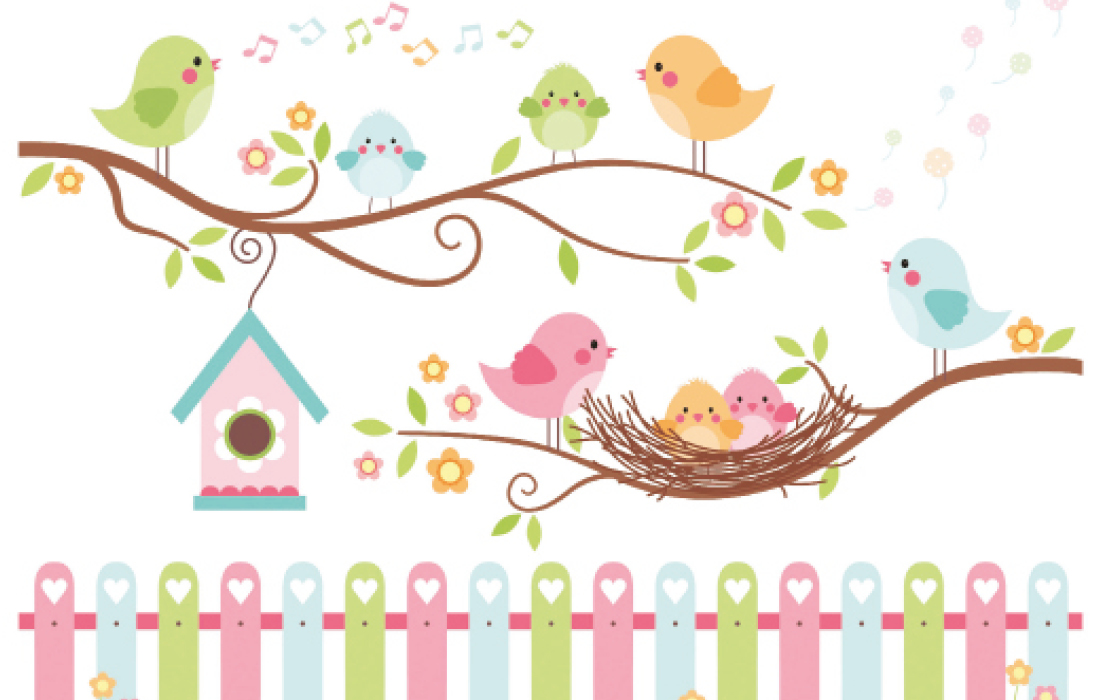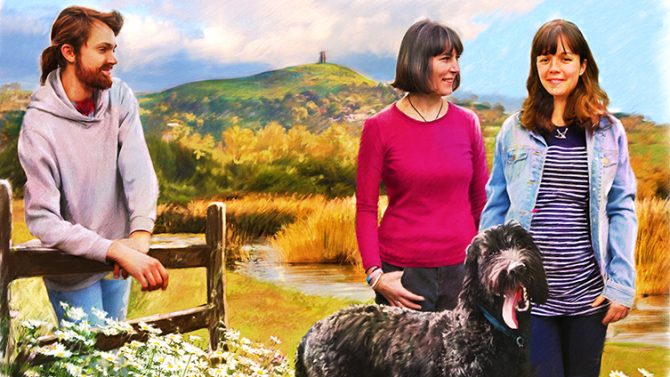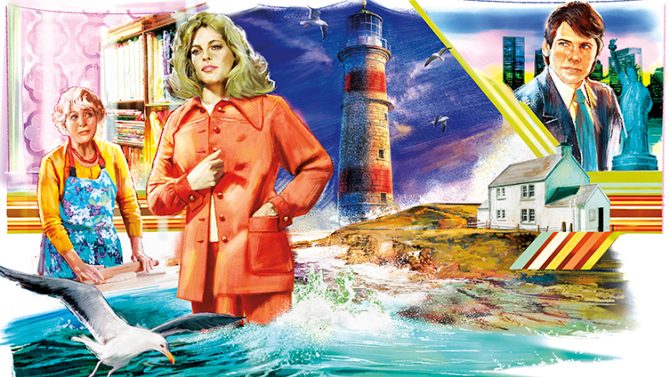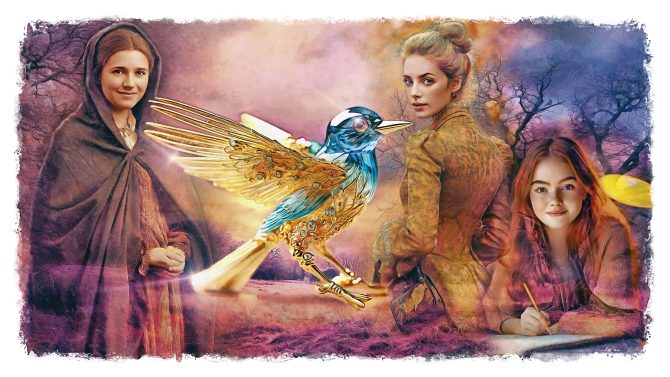Bye, Bye, Blackbird

Illustration credit: Shutterstock.
Subscribe to The People’s Friend! Click here

Illustration credit: Shutterstock.
MODERN LIFE SHORT STORY BY KATE FINNEMORE
xxxxxxxx
I hear my son Archie approaching way before he comes running into the kitchen.
“Mum, it’s Fluffball. I’ve seen him. He’s back!”
“Fluffball’s come back? Hey, there, mind the iron,” I say as he slams into my side. “It’s hot.”
Archie has just turned five and will be starting school in a couple of weeks’ time, so I’m ironing the creases out of the shirts and trousers we bought yesterday.
“You were wrong, Mum. Fluffball’s OK. Come and see.” Archie is grinning hugely and bouncing up and down with excitement. “Come on, let’s go!”
He tugs at my hand and I laugh, reaching back quickly to switch the iron off before allowing myself to be led through to the lounge.
Archie has pushed a chair over to the window that looks out across the back garden.
Letting go of my hand, he races over and scrambles up on to it, rocking it for an instant on to two legs. I draw in a sharp breath and wince.
“Careful,” I warn, crossing the room to stand beside him.
“He was on the grass!” Archie wails in disappointment. “He’s not there now.”
I hear the sadness in his voice and see it in his face, and my heart aches with love for him.
I pull him into a hug which he promptly squirms out of, leaning forward and resting his hands on the window-sill.
Mark says I’m over-protective.
“You worry too much, Ella,” he says. Sometimes I can hear the exasperation in his tone. “You must learn to let him go.”
He thinks I’ll turn Archie into an overly cautious mother’s boy. But he’s our only child and I can’t help wanting to cocoon him and shield him from life’s knocks.
I touch my knuckles to my son’s cheek.
“Let’s just stay here a while, then, sweetie,” I say softly. “See if he comes back.”
The blackbirds had built their nest in the rose bush that climbed up the back wall of the house.
Archie had been playing in his sandpit one day a few weeks before when he heard the sudden rustle of leaves and flap of wings, and he’d come running in to tell me.
From then on, we’d often stand or sit in the garden, watching from a distance while the female sat on her eggs and the male brought her grubs and bugs.
“Yuk, it’s still wriggling,” Archie would say, eyeing what the bird held in its beak with gleeful fascination.
Several days later, we heard tiny chirpings and knew the eggs had hatched.
Soon, both adult birds were bringing food to the nest, a constant relay, beaks crammed with fat white grubs, winged insects or long brown worms.
Archie loved it. I held him up so he could see the chicks, two of them, feathers fluffed out, now filling the nest.
Often, if we got too close, one of the adults would swoop low past us while the other hopped combatively along a metre length of the fence, making a harsh sound like a dry twig snapping, and I’d pull Archie back.
One morning, I found one of the chicks lying dead on the ground beneath the nest. I buried it in a corner of the garden before Archie could see it.
“You should have left it,” Mark said. “He needs to learn life can be cruel at times. Nature red in tooth and claw, and all that.”
“No.” My response was instinctive.
But as I watched Mark cycle down the road to work, I wondered if maybe he was right. Archie had to learn some time, and it wasn’t as if the chick was a much-loved pet.
Then the second chick fledged.
“He’s like a little ball of fluff,” Archie said, breathless with excitement.
“Then we’ll call him Fluffball.”
The chick was on the ground, partially hidden, close to where stems of honeysuckle came out of the soil.
He stood so still, and the speckled golds and browns of his plumage were such a perfect match with his surroundings, that it would have been easy to miss him.
It was only when, finally, Fluffball moved out from behind the honeysuckle that I saw something was very wrong. I must have made a sound because Archie twisted round to look at me.
“What is it?”
“His right leg’s trailing behind him. If he can’t walk properly, he, um –” I cleared my throat. “He might not survive, Archie.”
Now, it’s three days later, and Archie reckons he’s seen him and that he has survived, and that’s great news.
Standing next to my son, one arm resting across his shoulders, I watch eagerly out of the window and offer up a silent prayer that he’s right.
And there he is – unmistakable as he hops across the grass. My heart leaps in relief. Not only is Fluffball still alive, but his right leg seems to be trailing much less. I begin to believe that he might have a chance, after all.
I look around for the parents, and catch sight of the female, not on the roof of our garage but further away, on next door’s roof.
There are no worms in her beak and it occurs to me that, though she’s keeping an eye on her chick from a distance, she’s letting him find out about the world by himself.
I realise the blackbird’s got the right idea. She’s still there for Fluffball, but she’s letting him go, giving him the space to find his own way. And I must do the same.
My hand slides from my son’s shoulders and I step back a pace.
“He’ll be all right,” I whisper. “And so will you.”
Enjoy exclusive short stories every week inside the pages of “The People’s Friend”. On sale every Wednesday.

Paula Williams

Deborah Siepmann


Alison Carter


Teresa Ashby

Beth Watson

Alyson Hilbourne

Katie Ashmore

Kate Hogan

Liz Filleul

Beth Watson